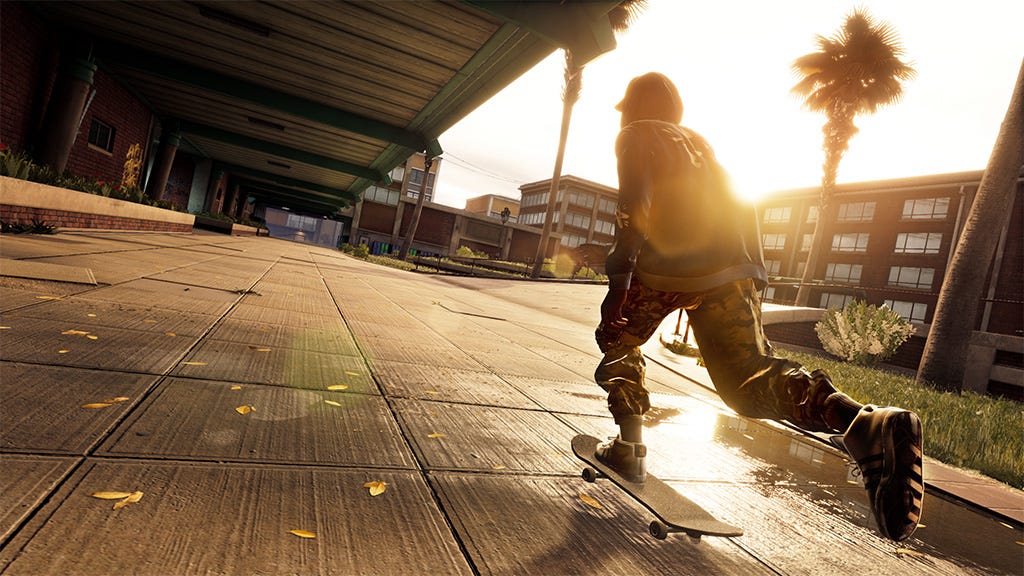Labels want their songs in video games, but can't make it happen
The music industry needs to get out of its own way. Here's how it can do just that.
Some of you may remember Tony Hawk Pro Skater. The early 00s saw a surge in punk rock, pop punk, ska, and emo, and this very video game arguably played a huge role. Its soundtrack became a gateway for many by introducing them to some of these genres and the bands that fall under them for the first time. However, music doesn’t seem to be booming in video games as much as it once did in years past. The music industry still sees video games as a potential goldmine for new listeners, but there are challenges. While some games have successfully used music to promote new artists in the past, it's not as widespread as it used to be.
Billboard recently wrote about this in their Is the Music Business Out of Synch With Game Developers? article. Here’s the gist of that piece.
The problems lie in licensing. Games often have tight development schedules and budgets, but music licensing is complex and expensive. There can be many rights holders for a single song, and they all need to be compensated. This can be a slow and costly process, discouraging game developers from using licensed music.
Some companies are working on solutions. STYNGR offers pre-cleared music with revenue-sharing deals, while Game Over focuses on music used by streamers and content creators outside the games themselves.
Both sides, music and gaming, acknowledge the need for change. Music execs want a more scalable licensing system, while game execs are open to exploring new ways to use music beyond traditional in-game placements. However, rights holders may be hesitant to change the current system, fearing it could devalue their music.
So that’s the gist. Here’s my take.
The music industry — record labels in particular — needs to get out of its own way. I understand that the practice of licensing songs is their bread and butter, but when it comes to different ways of distributing its meat and potatoes (if I told you I was writing this around lunchtime, could you tell?), it needs to treat each in their own unique way. And maybe the labels are already doing this to some degree, but maybe not unique enough.
While reading the original article, I couldn’t help but think of how video games are nowadays. It seems like every video game has an update once per week (I only know this out of pure observation of watching my kids play). Long are the days when you’d go out and buy a physical video game and that version wound up being the only version that physical copy would ever have. That was the game. It could never be altered. It would never change. If there was a bug in that game, that bug lived on forever. Also, any music inside that physical game would reside there until the end of time. But now, when we buy games, whether they be digital or physical, at some point after purchase, the user will have the option (or be required) to install an update for that game. After the update, that video game is no longer the same version you originally purchased.
It’s the last line in the above paragraph that should provide the “ah-ha” moment for record labels. Why not consider enabling game developers to introduce updates featuring new song titles regularly? These updates could even replace the already label-approved existing tracks, allowing for fresh, top-tier content. Instead of envisioning perpetual song licensing for a single game, labels should embrace limited-time agreements, offered at minimal or even no cost to game developers. This approach would allow for a long-term investment strategy that transcends the traditional and more short-term licensing model. Regularly adding or refreshing songs on a weekly or bi-weekly basis has the potential, in my view, to greatly benefit artists featured on these "soundtracks," particularly those associated with the more prominent and familiar game titles.
Additionally, the regular song updates not only keep the game experience fresh, but it gives the labels unlimited chances to win over game players with their artists’ music. Moreover, if one artist reaps the rewards via a particular game, the label could replicate this success by adding other artists to the same game, resulting in significant gains for the labels themselves. It’s a low-cost continual experiment that could result in massive rewards for all involved: a win-win-win across the board.
If you made it to the end of this post, thank you! If you’re interested, I also have a podcast titled Unplugged with Tyler Winters and John Pearman. As I do in this newsletter, it’s a weekly podcast where two best friends and past bandmates (myself included) talk music and provide our hot takes around the music scene. Feel free to check out Unplugged here. We’d love to have you every week!


